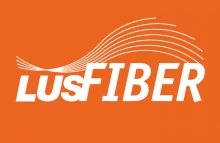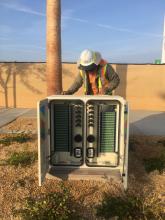An article from the Lafayette Advertiser notes: LUS Fiber plans faster rollout. Community networks are frequently attacked by incumbent groups and private providers for failing to immediately turn a profit after launching a network (something we have addressed here). LUS Fiber wisely started slow and will now start to ramp up the number of customers as they progress further along the learning curve of running the fiber-optic network.

As LUS Fiber passes the six-month mark, officials are planning to significantly increase the number of customers and areas that receive television, telephone and Internet service.
The system launched in some areas of the city in February, and thus far, the rollout has been somewhat slower than many anticipated. Lafayette Utilities System Director Terry Huval said the process hasn't gone faster because of a desire to focus on providing high-quality customer service.
"This is a new business," Huval said. "I intentionally held back because I wanted to make sure that every attempt we made to serve a customer was the best we could deliver. Now, we can start really accelerating."
A commentary worth reading: American broadband infrastructure: A national embarrassment
Several months ago, I visited the Netherlands and had the rare opportunity to be personally embarrassed by our terrible broadband infrastructure. The Dutch were literally making fun of me. The fact that our country, with its vast resources and its illustrious history -- Benjamin Franklin, Alexander Graham Bell, Thomas Edison, Steve Jobs -- has such terrible internet service should be an outright national scandal.
If you live in Seattle and want to get involved in telecommunications issues, the city is looking for tech advisors. More details about the Citizens' Telecommunications and Technology Advisory Board (CTTAB)
Fast, affordable Internet access for all.







